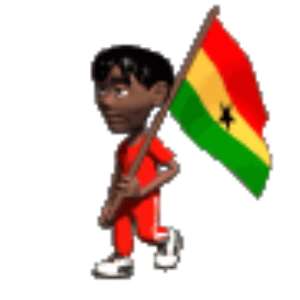
While some Ghanaian newspapers are strenuously battling to catch up with international standards on the theory and practice of journalism, others are gaining notoriety for publishing articles generally considered to be defamatory and libelous.
The August 2006 edition of the CPQ, a quarterly magazine of the UK-based Commonwealth Press Union, says, “Ghana newspapers top 'insult of the year' list”.
Two leading opposition tabloids, Ghanaian Lens and Ghana Palaver, ranked high in the league of newspapers that wrote and published stories with impunity during the period of January to March 2006.
This is considered as a dangerous precedence for Ghana's thriving democracy, as it seeks to abuse basic and fundamental human rights of individuals and institutions.
The CPQ was alarmed by the findings of a recent study conducted by Accra-based Center for Media Analysis (CMA), which sought to determine the extent to which 'dirty language' is used in privately owned newspapers. The study looked at 47 news columns of 18 privately owned papers and recorded 363 insults spanning the period under review.
Topping the list was the pro-opposition National Democratic Congress (NDC)'s Ghanaian Lens, noted for libeling the sitting President and his party. The CPQ could not but only comment that “calling someone a 'syphilis-contracting dick' isn't going to make fast friends in many international capitals”.
In all, the Ghanaian Lens scored 212 insults, representing 58.4% of the total, while Ghana Palaver, its sister paper, came second with 48 insults, representing 13.25%.
The study revealed that words like 'stupid', 'foolish' and 'insane' were the most frequently used insults. It indicated that “less frequently used, but arguably more painful, were phrases like 'stinking anus', 'ugly head' and 'mouth like a hook'”, all of which it deems very unpalatable and indeed unprofessional.
That notwithstanding, Kobby Fiagbe, Editor of the Ghanaian Lens, is quoted in the CPQ as saying “the insults were robust”, in a bid to rationalize the insults carried by his paper to the CPQ.
Kobby's argument was that “what goes around, comes around”, explaining that “it's only because a section of the political class who think they have a God-given right to rule this country are now on the receiving end of what they and their agents were dishing out to others when they were in opposition”.
He is again quoted to have said, “Perhaps some may say we tend to be very robust in our reactions. But the only way to sanitize the system is to demonstrate that nobody has monopoly over the use of insults,” he justified.
In totality, insults are seen as a gross abuse of press freedom; something that the Kufuor-led New Patriotic Party (NPP) government has always tried to guarantee. This is evident in the fact that upon assumption of power, first on its agenda was for the NPP government to repeal the 'controversial' criminal libel law; a clause that its predecessor the NDC government always used in incarcerating and gagging journalists.
Senior journalists and authorities like Kofi Coomson, Kwaku Baako Jnr., Ben Ephson and Haruna Atta and even members of the public have stated at various times that the press has enjoyed greater freedom under the NPP government than any other government, including the Jerry Rawlings-led NDC.
Though the CPU insists and has always pushed for freedom of the press, it gravely frowns on such practices that drag the noble profession into disrepute, taking into consideration that the press is the 'fourth estate of the realm'.




 Tuesday’s downpour destroys ceiling of Circuit Court '8' in Accra
Tuesday’s downpour destroys ceiling of Circuit Court '8' in Accra
 SOEs shouldn't compromise on ethical standards, accountability – Akufo-Addo
SOEs shouldn't compromise on ethical standards, accountability – Akufo-Addo
 Father of 2-year-old boy attacked by dog appeals for financial support
Father of 2-year-old boy attacked by dog appeals for financial support
 Jubilee House National Security Operative allegedly swindles businessman over sa...
Jubilee House National Security Operative allegedly swindles businessman over sa...
 Nobody can order dumsor timetable except Energy Minister – Osafo-Maafo
Nobody can order dumsor timetable except Energy Minister – Osafo-Maafo
 Mahama wishes National Chief Imam as he clock 105 years today
Mahama wishes National Chief Imam as he clock 105 years today
 J.B.Danquah Adu’s murder trial: Case adjourned to April 29
J.B.Danquah Adu’s murder trial: Case adjourned to April 29
 High Court issues arrest warrant for former MASLOC Boss
High Court issues arrest warrant for former MASLOC Boss
 Align academic curriculum with industry needs — Stanbic Bank Ghana CEO advocates
Align academic curriculum with industry needs — Stanbic Bank Ghana CEO advocates
 Election 2024: We'll declare the results and let Ghanaians know we've won - Manh...
Election 2024: We'll declare the results and let Ghanaians know we've won - Manh...
